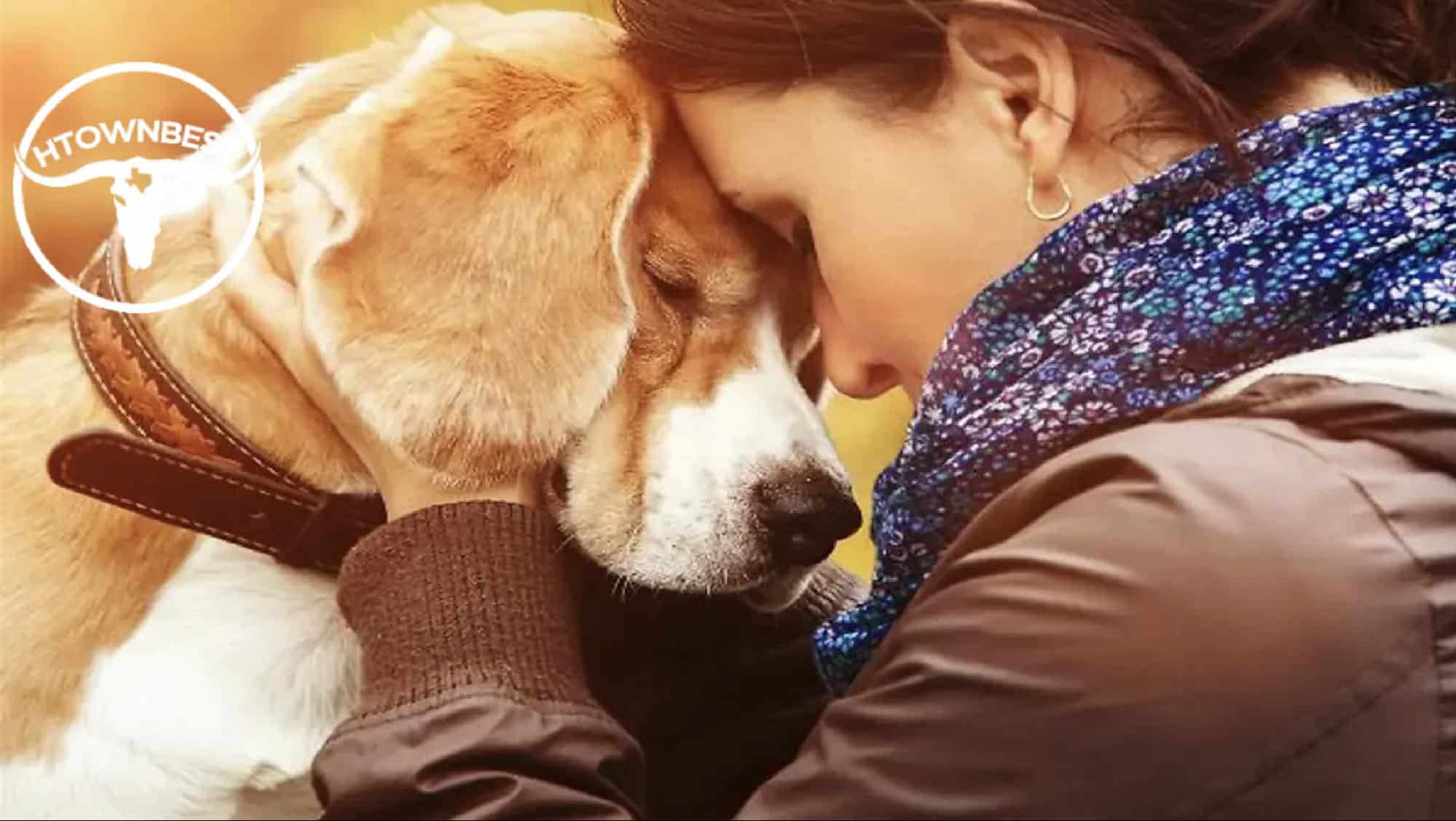Your Guide to Dog Adoption in Houston

- What is the first thing you need to do when looking for a dog to adopt in Houston?
- What are some dog adoption places in Houston?
- Houston Pets Alive!
- Houston Humane Society
- Citizens for Animal Protection
- Houston SPCA
- Harris County Animal Shelter
- Special Pals
- K-9 Angels Rescue
- Friends for Life
- BARC Animal Shelter and Adoptions
- What is the adoption process in Houston?
- Licensing Your Dog in Houston
- Your Dog’s First Vet Visit
- How much does it cost to adopt a dog in Houston?
- Things Your Dog Will Need
- Dog Food
- Toys
- Treats
- Dental Care
- Exams and Vaccinations
- Waste Bags
- Parasite and Flea/tick Preventativesp
- Pet Insurance
- Harness and a Leash
- Bedding
- Crate
- Grooming Products
- Pet-friendly Cleaning Products
- Puppy Pads
- FAQs about Dog Adoption in Houston
Planning on adopting a dog in Houston? Below, you’ll learn everything you need to know for you and your new furry best friend to begin a new chapter in your lives.
What is the first thing you need to do when looking for a dog to adopt in Houston?

When looking for a dog to adopt in Houston, you must first locate your new furry friend. There are several shelters in Houston that work to rescue and rehome strays.
By the way, when choosing a shelter, make sure to check out their web pages to discover what dog breeds they have for adoption. Also, check out the photographs and biographies of the dogs that you like.
Doing this will help you determine if the dog will be a good fit in your life.
What are some dog adoption places in Houston?

Some of the most well-regarded dog adoption places in Houston are listed below.
Houston Pets Alive!
- Website: Houston Pets Alive!
- Address: 2800 Antoine Dr #2854, Houston, TX 77092, United States
- Contact Info: +1 832-786-9310
Houston Pets Alive rescues animals at risk of euthanasia by coordinating efforts with the BARC and the Harris County Animal Shelter.
Houston Humane Society
- Website: Houston Humane Society
- Address: 14700 Almeda Rd, Houston, TX 77053, United States
- Contact Info: +1 713-433-6421
The Houston Humane Society is an animal shelter that saves dogs and also offers medical services.
Citizens for Animal Protection
- Website: Citizens for Animal Protection
- Address: 17555 Katy Fwy, Houston, TX 77094, United States
- Contact Info: +1 281-497-0591
Citizens for Animal Protection (CAP) is a shelter that’s been around for about 50 years, providing services including low-cost immunization care, and humane education programs.
Houston SPCA
- Website: Houston SPCA
- Address: 7007 Old Katy Rd, Houston, TX 77024, United States
- Contact Info: +1 713-869-7722
The Houston SPCA is the city’s oldest and largest animal welfare group. Among its many services are conducting investigations into reports of animal abuse, neglect, or cruelty and finding homes for animals in need.
Harris County Animal Shelter
- Website: Harris County Animal Shelter
- Address: 612 Canino Rd, Houston, TX 77076, United States
- Contact Info: +1 281-999-3191
The Harris County Animal Shelter is a no-kill facility that is run by the Veterinary Public Health department of Harris County Public Health. They take abandoned animals, provide pet wellness services, and facilitate adoptions.
Special Pals
- Website: Special Pals
- Address: 3830 Greenhouse Rd, Houston, TX 77084, United States
- Contact Info: +1 281-579-7387
Special Pals Shelter provides not only pet adoptions, but other pet services you’ll be needing such as wellness, spay/neuter, and microchipping services.
K-9 Angels Rescue
- Website: K-9 Angels Rescue
- Address: 1215 West 19th Street Houston, Texas
K-9 Angels Rescue is a non-profit organization staffed by more than 350 animal lovers and accepting dogs of all breeds. They provide adoption for anyone willing to give a dog a comfortable and loving home.
Friends for Life
- Website: Friends for Life
- Address: 107 E 22nd St, Houston, TX 77008, United States
- Contact Info: +1 713-863-9835
The Friends for Life Animal Shelter is a community-oriented organization that provides low-cost or free spay/neuter surgery and a pet food pantry.
BARC Animal Shelter and Adoptions
- Website: BARC Animal Shelter and Adoptions
- Address: 3300 Carr St, Houston, TX 77026, United States
- Contact Info: +1 713-229-7300
As Houston’s official shelter, BARC Animal Shelter and Adoptions is obligated by law to take in any stray animal that is presented to the city. So you’ll find no shortage of furry friends that need a home.
What is the adoption process in Houston?

There is no uniform adoption procedure across animal welfare organizations in Houston. Although the particulars will change, the general adoption process remains the same.
First things first: discover a dog you like and submit an application to adopt it.
In your application, you should be detailed about such things as where you reside, how often you travel, and whether or not you already have a regular veterinarian.
Note that you can apply for dog adoption at the shelter of your choice either online or in person.
Next, your adoption application is reviewed by a professional adoption counselor, who will try to set up a meeting with the dog and you.
By the way, online applications typically result in a delay of a few days before a meeting can be scheduled. They simply have longer processing time for most organizations.
Make sure to attend the adoption meeting with all household members, including any other dogs, who will be sharing the home with the rescue.
Do observe your possible pet’s social interactions with others and make a mental note of any problematic tendencies that will require extensive effort to change.
If the meeting goes well and you confirm your resolve to adopt the dog, the adoption shelter will be able to begin the adoption process.
The shelter of your choosing will compile all of the available information on the dog, including any medical history.
Usually, an adoption counselor will talk to you about the responsibilities of dog ownership, including vaccination and licensing. This often happens once you complete the paperwork and pay the adoption fee.
If you rent, the shelter will also try to get in touch with your landlord and your veterinarian, to be certain of optimal conditions for the dog. To make sure the dog is going to a good home, some rescue centers will request a visit.
Licensing Your Dog in Houston

As a part of the adoption process in Houston, all dogs and cats in Harris County (and thus, Houston) over the age of three months are required to have a current rabies vaccination and a county licensing tag.
What you’ll need when licensing your dog in Houston is:
- Your name
- Date of birth
- Address
- Driver’s License number
- Name, breed, color, age, and size of your pet
- Documentation of sterilization or rabies immunization
The dog licensing fee in Harris County is $20 to $80, depending on the dog’s age and the owner’s age or military status.
Your Dog’s First Vet Visit

Your dog’s first vet visit should occur within the first week of adoption. This way, you and your dog can get to know your veterinarian early on.
Furthermore, the vet can check for diseases and parasites that the shelter might have missed, such as kennel cough.
These kinds of minor, easily curable health problems are rather typical for dogs to bring home. Do note that the initial veterinary appointment for your new dog is often covered in full or in part by the rescue organization.
Also, don’t forget to bring all adoption documents to the initial appointment so that the veterinarian can update their files.
How much does it cost to adopt a dog in Houston?

The average price range for adopting a dog in Houston ranges from $50 to $300+. The reason for this is because there is no standardized cost for adopting a dog in Houston.
Additionally, each animal shelter in Houston has different fees and services they offer included in the adoption fee.
Things Your Dog Will Need

Here are a few things to get for your new dog before bringing him/her home and continuously throughout your dog-raising journey.
Dog Food

Not all dog food is of the same high-quality.
So if you want your dog to be healthy in the years to come, invest in dog food that will not irritate your furry friend’s gastrointestinal system, and food that will also keep their skin and fur healthy.
Toys

You want to make sure you have plenty of toys for your dog before they come home. Having toys for your dog is important because if you don’t they will easily grow bored and start chewing on your furniture—which you don’t want.
Treats

While some dogs that come from the shelter are trained, most are not. Having a supply of treats on hand will help you in your endeavor to train your dog, as it’s a nice delicious reward for them.
You can choose from a variety of treats such as dog bones, chewable dog jerky sticks and more.
Dental Care

You’re not the only one who needs to go to the dentist—your dog does too. A wide range of oral health problems, such as periodontal disease can be avoided with regular dental care for your pet.
When periodontal disease progresses to its latter stages, it destroys the tissues around the tooth and erodes the socket that holds the tooth in place, making the tooth loose.
Moreover, your pet’s saliva contains calcium, which can calcify the germs as they decompose. Also, if your dog gets a buildup of tartar on their teeth, you will have problems.
Tartar is hardened plaque, and it can cause gingivitis, which can cause an infection at the tooth’s root.
Additionally, broken teeth are another prevalent dental issue. Your pet’s teeth might be broken if you give them antlers or raw bones to chew on.
This can cause tooth trauma to your pet.
When the nerve of a tooth is exposed due to trauma, your pet will experience excruciating agony. The exposed nerve also increases the risk of infection, which can be quite painful for your pet.
As a result, extraction of the tooth is necessary at this time.
So to avoid all of these issues, we recommend continuous and consistent dental care check ups for your dog.
Exams and Vaccinations

Having a seemingly healthy pet does not guarantee that your dog is in fact healthy. Maintaining routine bloodwork and veterinary examinations is crucial.
All pets regardless of age should visit the vet at least twice a year for a wellness exam so that any potential health issues can be identified, treated, and perhaps prevented.
Furthermore, vaccines are meant to protect your pets from potentially lethal diseases like parvovirus, rabies, and distemper. Vaccination is crucial since many puppies can be exposed at a young age if they are not protected.
Diseases like these are terrible for pets to deal with, but the good news is that they are fully avoidable.
These are recommended vaccinations for your dog.
- Rabies Vaccine
- Distemper
- Parvovirus
- Adenovirus 2
- Feline Herpes virus
- Feline Panleukopenia
- Feline Calicivirus
Waste Bags

Waste disposal bags for dogs are compact and lightweight, so you can use them at home and on the go whenever you’re out with your dog. The bags can be carried in a pocket, a handbag, tied to a leash, or clipped onto a little plastic bag dispenser.
Moreover, investing in a supply of dog waste bags is a great way to be a responsible dog owner while simultaneously saving money and keeping your neighborhood clean.
Parasite and Flea/tick Preventativesp

Insects such as mosquitoes, fleas, and ticks can enter your home and infect your pet through open windows and doors, as well as on articles of clothing worn by people who have been outside.
Thus, it is critical that as a new pet owner, you protect your dog from parasites and fleas/ticks by getting your dog a preventative. You can get this at the vet in either a form of a shot or a tablet which lasts for up to three or six months.
Pet Insurance

If your dog has ongoing medical problems or is of a breed predisposed to illness, pet insurance may be a wise investment. We recommend comparing quotes from different pet insurance companies to see which company would best suit your needs.
Harness and a Leash

Depending on your breed of dog, you will need to choose from a collar or a harness. We recommend a harness because aharness will offer the owner/handler more control of a zesty dog.
Big and strong dogs can be difficult to manage especially on routes with exciting stimuli and scents. A harness will allow you to properly control your excited pooch when it tries to go after a bird, cat or a dog on the pavement or public park.
When you use a collar, the pressure is directed at the neck and pulling on it may cause injuries in small and delicate dog breeds. On the other hand, a harness distributes the pressure on the back and entire body.
Bedding

Possessing a dog bed offers a wide variety of advantages. Your dog can take advantage of their bed both for daytime snoozing and late night slumber.
A dog bed is also preferable over the floor because it provides insulation, cushioning for sore limbs, and protection from calluses. Plus, if you get a dog it’s own bed, you won’t have to share yours.
Crate

When no one is home to keep an eye on your dog, your dog can stay safe and sound in their crate. To the dog, it is his or her safe haven and place of rest.
The crate’s function is to enclose the dog for the sake of safety, security, house training, deterring destructive behavior, and use for travel.
Grooming Products

Grooming your pet regularly can help prevent shedding, fleas, ticks, and even some health problems. Having a well-groomed pet is about more than simply aesthetics.
Grooming your pet is a great way to prevent and treat illness. Additionally, you’ll be able to spot the earliest signs of any diseases or ailments.
Pet-friendly Cleaning Products

Because of the potential for poisoning from normal cleaning products, it is important that we only use pet-friendly cleaning products.
So, check that the stuff you use to clean up around pets isn’t poisonous. Enzymatic and baby-safe products are best.
Puppy Pads

When housebreaking your puppy, puppy pads can be a great help during the critical early stages when your puppy needs to go to the bathroom frequently.
In terms of upkeep and cleanliness, all that needs to be done is to remove the old pad and replace it with a new one.





